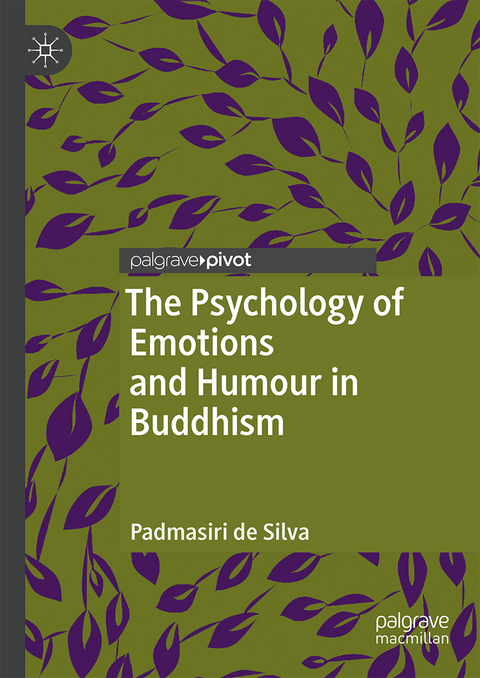
The Psychology of Emotions and Humour in Buddhism
Springer International Publishing (Verlag)
978-3-319-97513-9 (ISBN)
Padmasiri de Silva is Adjunct Research Associate at Monash University, Australia. He has a PhD in East-West Comparative Philosophy and an Advanced Diploma in Counselling. His publications include Buddhist and Freudian Psychology, The Environmental Philosophy of Buddhism and An Introduction to Buddhist Psychology and Counselling.
Preface; Deegalle Mahinda.- Author's Preface.- Chapter 1. Mindful Emotions.- Chapter 2. The Emotion of Anger.- Chapter 3. Greed, the Acquisitive Drive and Sensuality.- Chapter 4. A Buddhist Perspective on Contemporary Social Pathology.- Chapter 5. The Buddha's Technique of Teaching and the Use of Parables and Similes.- Chapter 6. Conceit and Pride.- Chapter 7. The Deep Philosophy within Zen Humour.- Chapter 8. The 'Comic' in Kierkegaard's Three Stages in Life and Their Parallels in Buddhism.- Chapter 9. Theories of Humour.- Chapter 10. Buddhist Perspectives on Fear.- Chapter 11. Emotional Integrity and Resilience.
"Readers will like the book because of the humourous stories that are both useful and entertaining. ... Easy-to-understand and succinctly defined Buddhist words enable lay Buddhists and others unfamiliar with Buddhist jargon to readily comprehend the book. Advanced readers and academics will also benefit from the wealth of knowledge ... . Overall, the book is worth reading for anybody interested in learning how humour can lead to mindfulness, and therefore to escape from the impurities of right living." (Chandima Gangodawila, Reading Religion, readingreligion.org, January 24, 2022)
“Readers will like the book because of the humourous stories that are both useful and entertaining. … Easy-to-understand and succinctly defined Buddhist words enable lay Buddhists and others unfamiliar with Buddhist jargon to readily comprehend the book. Advanced readers and academics will also benefit from the wealth of knowledge … . Overall, the book is worth reading for anybody interested in learning how humour can lead to mindfulness, and therefore to escape from the impurities of right living.” (Chandima Gangodawila, Reading Religion, readingreligion.org, January 24, 2022)
| Erscheinungsdatum | 15.09.2018 |
|---|---|
| Zusatzinfo | XXVII, 80 p. |
| Verlagsort | Cham |
| Sprache | englisch |
| Maße | 148 x 210 mm |
| Gewicht | 260 g |
| Themenwelt | Geisteswissenschaften ► Psychologie |
| Schlagworte | Ã anavira Thero • Buddhist theory of humour • category reversal • Contemporary Social Pathology • dialectical opposition • embracing opposites • Heidegger • Kierkegaard • Mindful Emotions • Ñanavira Thero • Ñāṇavīra Thero • Sartre • The Buddha Smiles • Theravada Buddhism • Theravāda Buddhism • tragic-comedy • Zen humour |
| ISBN-10 | 3-319-97513-7 / 3319975137 |
| ISBN-13 | 978-3-319-97513-9 / 9783319975139 |
| Zustand | Neuware |
| Haben Sie eine Frage zum Produkt? |
aus dem Bereich


